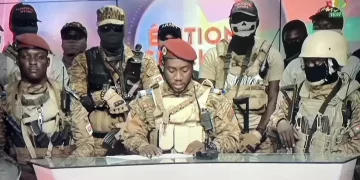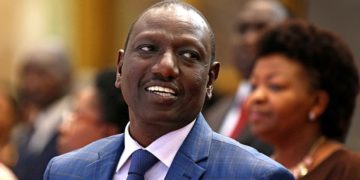[ad_1]
The impact of the coronavirus crisis on global sport has seen administrations, franchises and clubs scramble in an effort to survive.
In South Africa currently, there is no sport taking place, and that will continue to be the case throughout level four of the national lockdown, which gets underway at the beginning of May.
It has been a tough pill to swallow for this sports-mad community, and in every code the powers that be are looking for ways to get players back on the field – and back on television screens – as soon as possible.
The financial impact of the lockdown has been severe and pay cuts at the highest level are becoming commonplace, but the impact extends far deeper than just the professional organisations.
At club level, money is not always guaranteed and is often dependent on income generated from its own members and willing sponsors.
The 2020 club rugby season, for example, was suspended just as it was about to begin and, at this stage, it is very difficult to see how it will return this year. The financial burden that places the clubs under is significant and while some clubs are better off than others, the impact is felt by all with funds drying up.
“We have a huge amount of sponsorship coming into our club every year for us to be sustainable,” Johnathan van der Walt, head coach of the False Bay 1st XV in Cape Town, told Sport24.
“They spend a lot of money with us and when there is no rugby, they obviously have to withhold their money and with business being tight, I can’t even see sponsors being as willing and giving with their money even after we go back.”
Other sports clubs in the region have started asking members for donations so that they can pay their full-time staff, which includes everyone from administrators to caterers and those involved in the maintenance of fields and facilities.
In rugby’s case, the lockdown has also impacted the plans of players who had identified 2020 as the year for them to make a play at securing a professional contract.
With Craven Week scrapped for the year, the Varsity Cup suspended and club rugby over before it began, the feeder system in South African rugby has been disrupted.
Dawie Snyman, attack coach at the Stormers, explained how the absence of rugby below franchise level was significant.
“It’s massive for us and especially those players coming through,” he said.
“We’re always looking for a gem and someone who is coming through that club system who would get an opportunity in the SuperSport Challenge.
“If the clubs aren’t playing for whatever reason, and right now it’s the right reason, then it will be quite a big loss to our feeder system.
“In the Varsity Cup there were some players showing potential but that competition has been cut short so we couldn’t see more of those players. Hopefully, in some way, they can also get going at some stage.”
This year South Africa’s premier club competition, the Gold Cup, had expanded its qualification process throughout the country, giving most major clubs, regardless of their resources, a shot at going the distance in the competition.
There were to be 80 teams in the main draw, compared to just 16 in 2019, and the tournament was due to start this weekend.
With club rugby generating healthier crowds than provincial matches in many cases, the absence of these fixtures will hurt.
“We service a working class community and our main income stream, and almost our sole income stream, is our gate income,” Stanton Lesch, secretary at Tygerberg Rugby Club outside Cape Town told Sport24.
“Out of our gate takings we are able to fund all of our expenses like player petrol, groundskeepers, physios and coaches.
“We get seven home games in the league season and some are bigger than others, but our local derbies bring in good money. With no games, there is no gate, but there are still expenses.”
Lesch added that while Florida Park, Tygerberg’s home ground, is owned by the city, the club itself has been largely responsible for funding its own maintenance.
“Our executive has had to take a lot of its own personal money and put it into the club,” he said.
SA Rugby, meanwhile, is understood to be putting together a proposal to government to be allowed to stage a domestic competition from June to August that would serve as a replacement to Super Rugby.
SA Rugby is guaranteeing that it will provide services such as screening and testing of those involved while they would also have medical professionals on hand at matches and training sessions.
Even with that level of commitment, it seems a long shot given the current circumstances.
Club rugby, it seems, must remain patient and continue to bite the financial bullet.
“If we don’t have sponsors and we can’t pay players and give them certain things, will they still be around at our club?” Van der Wat added.
“From a club administration perspective, it’s very tough.”

















